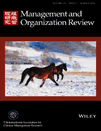

A new site, Stand Up 2 Science Bullies, launched last week:
www.standup2sciencebullies.com is a forum for scientists to share their experience and provide advice pertaining to scientific bullying. We welcome questions and comments from all scientists including students, faculty, and members of industry. We sincerely hope that this forum will serve as an informative resource for scientists who feel that they are being treated unfairly by other scientists.
Continue reading Scientists, do you feel bullied by critics? These chemists do








